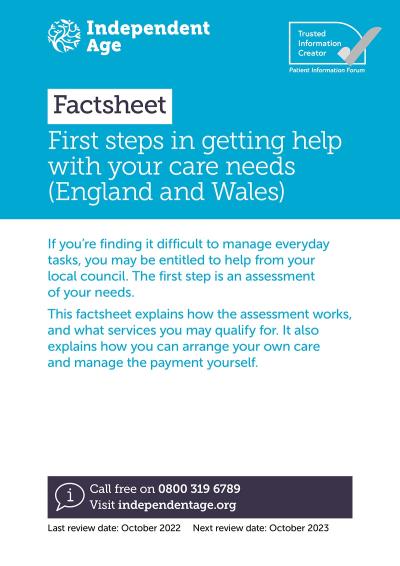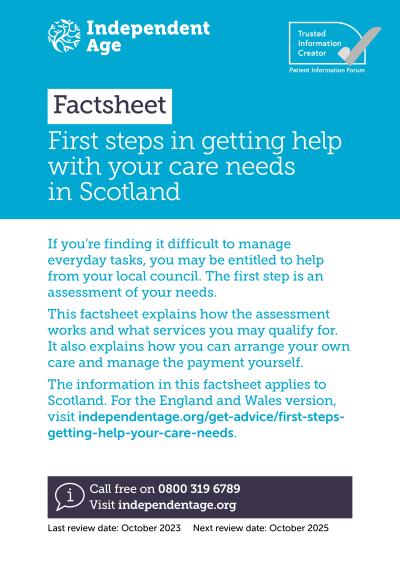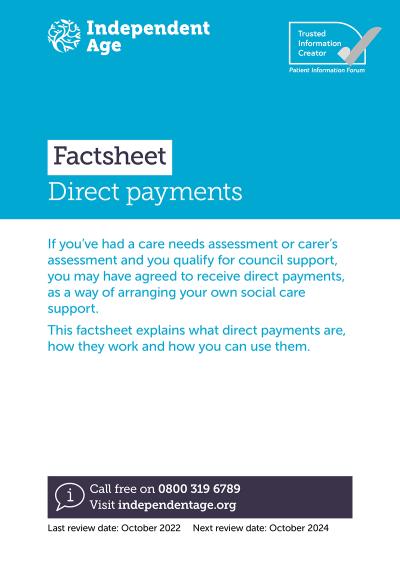Related publications

First steps in getting help with your care needs in England and Wales

First steps in getting help with your care needs in Scotland

If you qualify for support and the council is arranging or paying for some or all of your care, they must develop a written care and support plan with you. This should set out what support you should get and who will provide it.
Your care and support plan should set out in detail how your needs will be met. It must include:
Your plan should also include:
The plan should match your needs and situation. For example, if you have needs which sometimes change, your plan should describe how the type and level of support may also need to change.
The council is responsible for making sure the care and support plan is developed, but it’s your plan and it should reflect your wishes. They must fully involve you in putting it together, with their support if necessary. This may include getting help from an independent advocate. The council must also involve carers and anyone else you wish to be involved – this could be your GP or another care professional for example.
If you don’t have the mental capacity to make certain decisions about your care, the council must involve anyone who has an interest in your welfare, such as relatives or friends, or appoint an independent advocate if there is no one suitable to help you. Your plan must be developed in your best interests and you must still be involved as much as possible.
Your plan is personal to you and should be based on your care needs assessment. The council should also give you general information about services in your area and how much they cost, which may be useful when developing your plan. Depending on your needs, this might include:
The council should make every effort to ensure that you – and anyone else involved – agree with the final plan. If you’re not happy with it, you should raise any concerns with them. You may want to add something or suggest changes.
Once you’re happy with your plan, both you and your assessor should sign and date it. You and anyone else you request should be given a copy – ask if you don’t get one.
The council might provide your support services directly or they may commission other organisations, such as private home care agencies or charities, to provide them.
If you’re getting support at home, you might want to organise your own care through direct payments. This can give you more control over the services you receive, but comes with extra responsibilities.
If you are moving into a care home or receiving care at home through an agency, the agency or care home should also develop a more detailed care plan with you about how your needs will be met on a day-to-day basis. There are no legal requirements for this second care plan and the process and practice varies. However, it should be tailored to your needs and treat you with dignity and respect.
In England, the Care Quality Commission has more information about what you should expect; in Wales, visit Care Inspectorate Wales to find out more and in Scotland, visit the Care Inspectorate.
Social services should review your care and support plan within six to eight weeks of setting it up to make sure everything is working as it should be. After that, they should review your plan at least once a year. They should tell you when this will happen so any relevant professionals can be involved, as well as your carer or an independent advocate if you have one.
You can ask for a review at any time if you think your care needs or financial situation have changed. Anyone else who is supporting you or who is interested in your welfare can also request a review.
Social services may suggest support that you don’t want. If this happens, you can discuss your concerns with them and ask for a review of your care needs assessment. If you have mental capacity, you have the right to refuse services. However, this might mean that you don’t have enough support, for example to live safely and comfortably at home.

You can get advice about independent living and getting the right support for you from Disability Rights UK.
To find home care services, contact the Homecare Association.